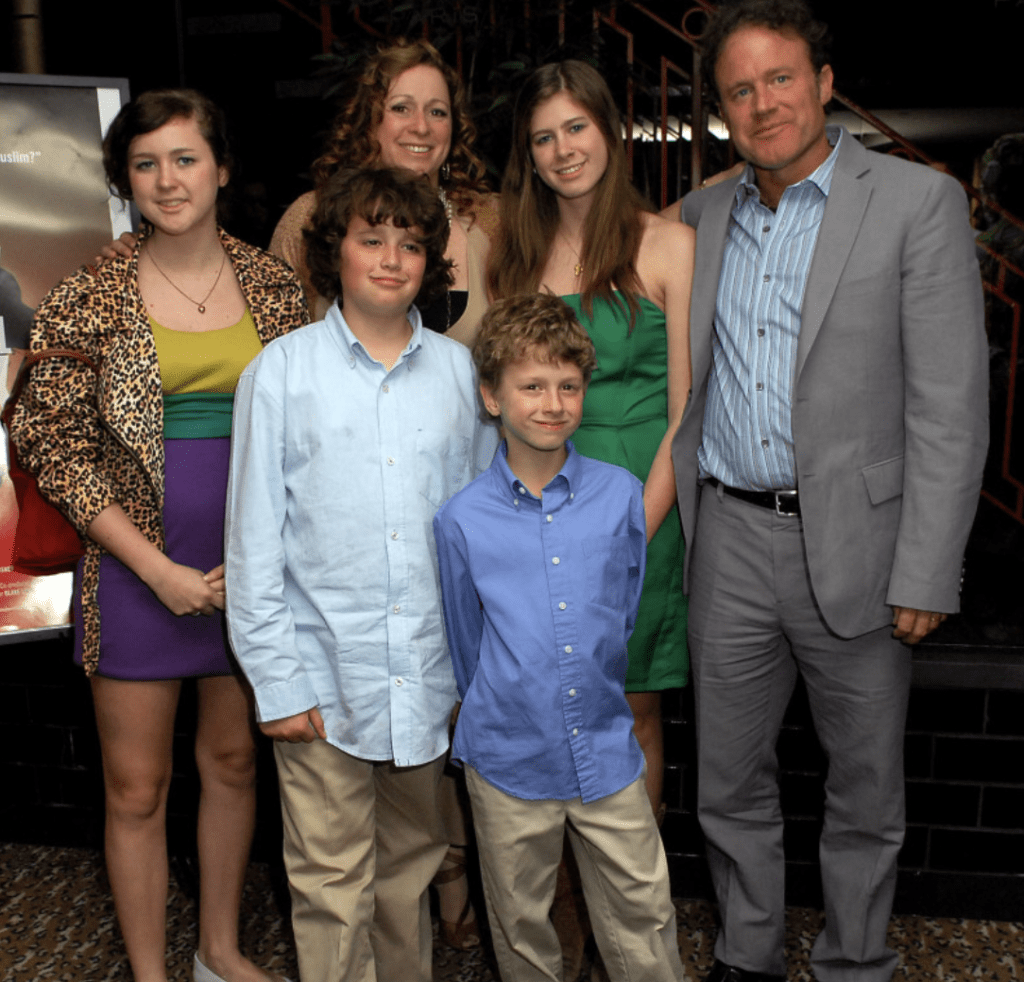 “Sometimes the most difficult kids to parent make the most interesting adults.”
“Sometimes the most difficult kids to parent make the most interesting adults.”
I’ll never forget those words.
I heard them from Abigail Disney. We were in D.C. at a meeting and serendipity sat us at a table next to each other. The granddaughter of Roy O. Disney, Abigail Disney told me she had four children.
I looked at her with wide eyes. We only had two small children at home. They were with my husband while I was traveling. I’d mentioned in an offhand way that my sweet firstborn had morphed into a defiant, stubborn, and very opinionated toddler and that it was hard for me to be patient with her foibles and ceaseless demands.
“Jennifer,” Abigail Disney replied, “sometimes the most difficult kids to parent make the most interesting adults.”
With that many children, I was sure Abigail Disney knew what she was talking about.
Difficult kids become kind and interesting young adults
We had that conversation nearly two decades ago.
My oldest will soon be turning 21.
She attends an Ivy League college.
An outspoken feminist, she loves to knit and bake and mountain bike. She’s equally at home wearing a pair of work jeans and installing curtains as she is in front of a make-up mirror putting on mascara.
With us now because her school is closed during these trying coronavirus times, she’s re-reading all of the Harry Potter novels. A competitive gymnast in high school, she likes to do back flips on the trampoline with her 10-year-old sister. My oldest also speaks fluent French. She loves to help people, learn about new cultures, debate politics, dance, make elaborate fru-fru cocktails, and watch what I consider bad TV on YouTube.
She’s one of the most interesting adults I know. And she was, honestly, a card-carrying member of the Difficult Kid Club. Strong-willed and opinionated, she was not an easy child to parent.
We were always very close.
I know she has lots of good memories of her childhood. When she was little we played pretend: going on a “safari” to catch the lions and tigers that roamed the African savannah, trying bathtub “soup” that tasted disgusting (pee-yew!), and visiting with my twin sister Nenny. She came with me on many work trips, including one that involved spending a day at EuroDisney in Paris after I was hired to write a family travel Paris guide.
We fought, a lot
And we often fought.
I know she also has many not-so-good memories of her childhood. We were often impatient with each other. With three younger siblings, she felt like she didn’t get enough attention. Our family was frequently strapped for cash while most of her friends were wealthy, which was alienating for her.

Abigail Disney with her family: Her husband Pierre Hauser and their four children in 2008. Photo via Heavy.com
Parenting is ever-evolving and ever-changing.
The relationship you have with your children changes, sometimes from hour to hour. Or day to day.
But even so, what Abigail Disney said is true: sometimes the most difficult kids to parent make the most interesting adults.
So if you’re in the throes of parenting difficult kids, what do you do?
-
Take the long view
Today was hard. Tomorrow will be better. This year was hard. Next year will be better. Children tend to develop in fits and starts. Six months is the magic number. A difficult 7-year-old may become an absolute delight at seven and a half.
-
Catch them doing something right
Always putting a positive spin on their behavior will help you keep your sanity. Believe me. So when your child stuffs a bar of soap down the shower spout and clogs it, doing think of him as a miscreant, think of him as a scientist. After all, that’s what he’s doing: a scientific experiment to see different states of soap matter and how much it takes to clog a drain.
-
Be forgiving of your difficult kids and, especially, of yourself
You might lose it. A lot. That’s okay. You can be kind to yourself (“I didn’t respond the way I wish I had this time. I will try not to yell next time.”) and you can apologize to them (“I’m sorry I lost my temper and yelled at you for drawing on the wall. Paper is for drawing on. Not walls. But I wish I had handed you a piece of paper instead of getting so angry.”)
-
Figure out what you both love to do and spend time doing it together
My son and I both loved basketball and frisbee. He also played soccer and would sometimes deign to be my coach. He’s 16 now and plays croquet with my husband. So maybe it’s biking together. Maybe it’s baking. Maybe it’s something as simple as making some bubbly water or a smoothie and watching bad TV. Whatever you both enjoy, make a point of doing it together. This gets a lot harder when they’re teenagers, but if you’re willing to be interested in what they are doing, you’ll be surprised at how willing they become to let you in.
-
Keep a family journal (and your own journal as well)
All those difficult moments make for some hilarious dinner table conversation once the storms have passed. You’ll be glad you recorded them. You can write a journal to each child, keep a family journal that everyone writes in (ours is in the bathroom. The idea is when you’re spending some, uh, quality time on the toilet, you can use it to write an entry), and also have a journal of your own as a non-judgmental place to vent.
Another thing that really helped us with the times when we were parenting several difficult kids at once?
We installed a heavy bag in the garage. When our kids were pushing all our buttons, I used to give myself a time-out and go punch the heavy bag. Or go for a fast run. Or scream into a pillow in my room with the doors closed.
Abigail Disney was right. Difficult kids become interesting adults. If we parent our difficult kids with self-forgiveness, humor, and patience, we get to reap the rewards later on.
Related posts:
A Commitment to Coloring Your Life
Five Uses for Gray Water
Cooking With Kids: Here’s How to Let Your 3-Year-Old Help You in the Kitchen
Published: May 11, 2020
Last update: January 13, 2024
Such good timing for this article!
I like the family journal idea. One of my wise friends once said: “if all goes well, you’re going to know your children as adults for a lot longer than you knew them as children.” Indeed, it’s important to keep the long view in mind.